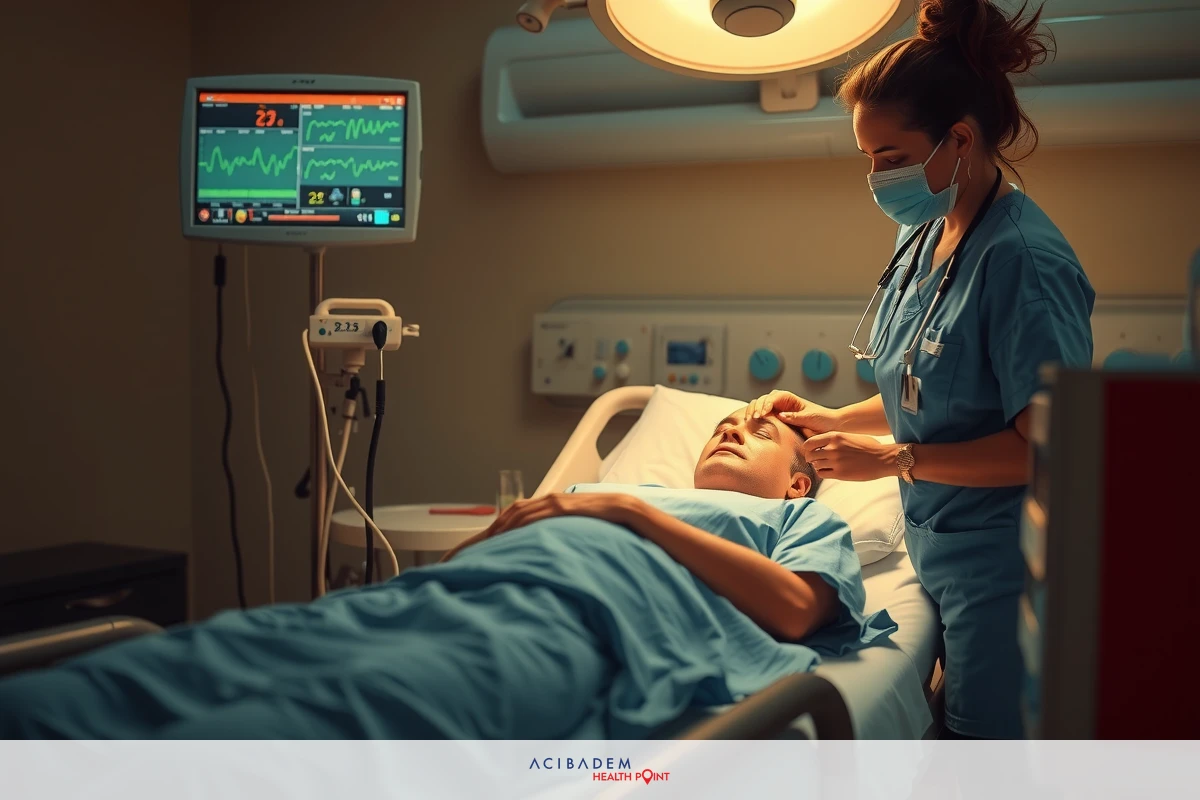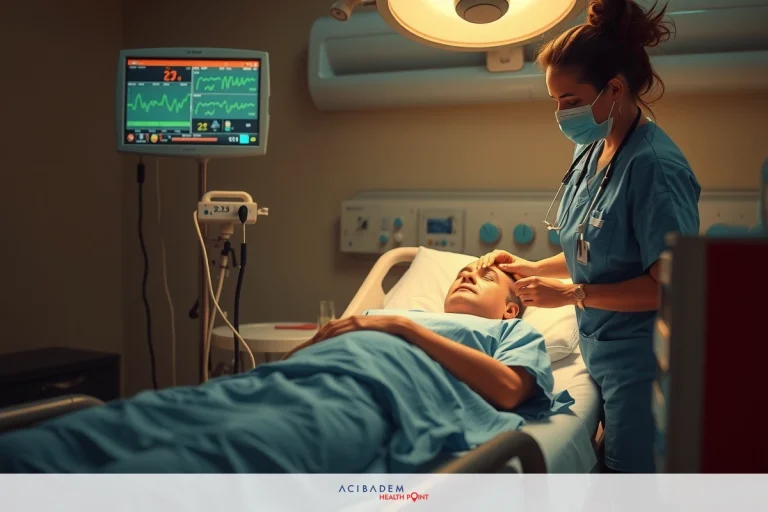How Long in Recovery Room After Rhinoplasty
How Long in Recovery Room After Rhinoplasty Rhinoplasty, is an operation aimed at reshaping or resizing the nose for cosmetic purposes or improving its functionality. Now, imagine yourself going through this procedure; you have been prepped by your medical team and successfully emerged from surgery.
Recovery time varies greatly among individuals. One might wonder how long it takes to regain full consciousness after the anesthesia wears off. Is it minutes? Hours? Yet another question that may spring up is about post-operative care: what exactly happens immediately following rhinoplasty?
These concerns are common and valid. The duration of your stay in the recovery room hinges on various factors such as individual health conditions and the complexity of the operation performed. It’s essential to familiarize oneself with these aspects prior to undergoing any form of surgical intervention.
Preparing for Rhinoplasty Surgery
The path to a successful rhinoplasty begins long before the day of surgery. Preparation is key, and understanding what this involves can make all the difference in ensuring a smooth recovery. The first step towards preparing for any surgical procedure, including rhinoplasty, is gaining comprehensive knowledge about the process itself. This includes learning about potential risks and complications, as well as having clear expectations regarding results.
Your medical history will be thoroughly reviewed by your surgeon during your pre surgery consultation. It’s crucial to disclose any existing conditions such as allergies or past surgeries you’ve had. This provides valuable insights that aid in planning your surgical approach which ultimately impacts healing post-surgery.
Prior to surgery, specific instructions are provided which need adherence for optimal outcomes. These may include dietary restrictions or alteration in medication schedules if you’re on regular drugs – especially blood thinners – since these can influence bleeding during surgery and subsequent recovery time spent in the recovery room.
A notable aspect of pre-surgical preparation involves making arrangements for assistance after the operation bear in mind that driving yourself home from hospital won’t be possible immediately following anesthesia! Also remember that while
recovering at home post-rhinoplasty you’ll require some help with daily tasks initially so plan accordingly. Follow all instructions given by your healthcare team diligently consider them roadmaps leading towards a successful recovery journey post rhinoplasty.
What to Expect in the Recovery Room
Upon completion of your rhinoplasty procedure, you’ll be gently awoken and escorted into the recovery room – a place where post-surgery monitoring is conducted. Here, medical professionals keep an eye on vital signs like blood pressure and heart rate as anesthesia wears off. This immediate care plays a crucial role in ensuring safety during this sensitive period.
Along with managing pain effectively, another primary concern during this stage involves dealing with potential nausea resulting from anesthesia. Antiemetic drugs might be administered if necessary – again underscoring the importance of effective communication regarding how you feel post-surgery.
While all these clinical aspects are being taken care of by your healthcare team behind-the-scenes as part of their routine post-operative protocols following any surgery including rhinoplasty, what would matter most to you at this point is when exactly will you regain full consciousness? As reassuring as it may sound: rest assured that even

though memories from this phase might remain fuzzy due to residual effects from anesthesia no critical decision-making would come your way until complete alertness returns!
The duration spent within the confines of a recovery room isn’t fixed universally since individual responses towards surgical interventions differ greatly along with varying complexities involved across different types pertaining to rhinoplasty itself thereby influencing overall healing times.
Once deemed stable enough for discharge from the recovery room setting usually spanning few hours but occasionally stretching longer depending upon specific circumstances surrounding each case – further convalescence continues at home or hospital ward depending on arrangements made pre-surgery keeping convenience plus medical requirements balanced optimally for each patient.
Therefore, while the prospect of undergoing rhinoplasty may seem daunting initially given all these considerations remember that well-orchestrated efforts are continuously made by dedicated medical professionals ensuring that your journey towards recovery post-surgery begins on a safe and comfortable note right from the time spent in the recovery room!
Length of Stay in the Recovery Room
The length of stay in the recovery room after rhinoplasty surgery is not a one-size-fits all scenario. The duration varies greatly among individuals and hinges on several factors that can impact your healing speed post-surgery. These may include personal health conditions, age, overall fitness level, and the complexity of the operation performed.
As anesthesia wears off, you will gradually regain consciousness while under close monitoring by medical professionals within this safe haven known as the recovery room. This time period generally spans between 1 to 3 hours immediately following surgery but could stretch longer depending on individual responses towards anesthetic agents used during surgery.
It’s important to note that emergence from anesthesia doesn’t equate immediate discharge from professional care – patients are typically observed for additional few hours before being allowed to return home or moved to hospital wards if extended post-operative care is anticipated based on pre-determined criteria thereby ensuring optimal safety at all times.
While it might seem tempting to hasten this process with a view of returning back towards normal life routines bear in mind that rushing through stages involved during early convalescence particularly within first few hours following any surgical intervention including rhinoplasty can potentially compromise outcomes hence patience indeed is virtue worth embracing throughout this journey!
Each body heals at its own pace hence comparing durations spent by others previously inside similar settings wont necessarily provide accurate benchmarks regarding what exactly would be applicable specifically for you so do allow yourself ample time necessary for thorough recuperation instead focusing solely upon clock ticking away!
Frequently Asked Questions
How long will I stay in the recovery room post-rhinoplasty? A: The duration varies widely among patients. Generally, you can expect to spend anywhere between 3 to 24 hours in the recovery room as anesthesia wears off but remember, this can stretch longer depending on individual responses towards anesthetic agents used during surgery. Q: What happens while I'm in the recovery room? A: While you're awakening from anesthesia, your vital signs - such as heart rate and blood pressure - are closely monitored by healthcare professionals. Pain levels and potential nausea are also assessed and managed accordingly. Q: Will I feel pain immediately after surgery? A: Everyone's experience with pain is different. However, be assured that measures for effective pain management post surgery are taken promptly within the recovery room setting itself hence discomfort if any should remain well within manageable limits! Q: Can my family join me in the recovery room immediately after surgery? A: Typically, visitors aren't allowed inside immediate post-operative areas including recovery rooms due to infection control protocols plus privacy considerations unless specific exceptions apply based upon hospital policies or under special circumstances deemed appropriate by your care team.
Q: How long will I stay in the recovery room post-rhinoplasty? A: The duration varies widely among patients. Generally, you can expect to spend anywhere between 3 to 24 hours in the recovery room as anesthesia wears off but remember, this can stretch longer depending on individual responses towards anesthetic agents used during surgery. Q: What happens while I'm in the recovery room? A: While you're awakening from anesthesia, your vital signs - such as heart rate and blood pressure - are closely monitored by healthcare professionals. Pain levels and potential nausea are also assessed and managed accordingly. Q: Will I feel pain immediately after surgery? A: Everyone's experience with pain is different. However, be assured that measures for effective pain management post surgery are taken promptly within the recovery room setting itself hence discomfort if any should remain well within manageable limits! Q: Can my family join me in the recovery room immediately after surgery? A: Typically, visitors aren't allowed inside immediate post-operative areas including recovery rooms due to infection control protocols plus privacy considerations unless specific exceptions apply based upon hospital policies or under special circumstances deemed appropriate by your care team.
What happens while I'm in the recovery room?
While you're awakening from anesthesia, your vital signs - such as heart rate and blood pressure - are closely monitored by healthcare professionals. Pain levels and potential nausea are also assessed and managed accordingly.
Will I feel pain immediately after surgery?
Everyone's experience with pain is different. However, be assured that measures for effective pain management post surgery are taken promptly within the recovery room setting itself hence discomfort if any should remain well within manageable limits!
Can my family join me in the recovery room immediately after surgery?
Typically, visitors aren't allowed inside immediate post-operative areas including recovery rooms due to infection control protocols plus privacy considerations unless specific exceptions apply based upon hospital policies or under special circumstances deemed appropriate by your care team.











